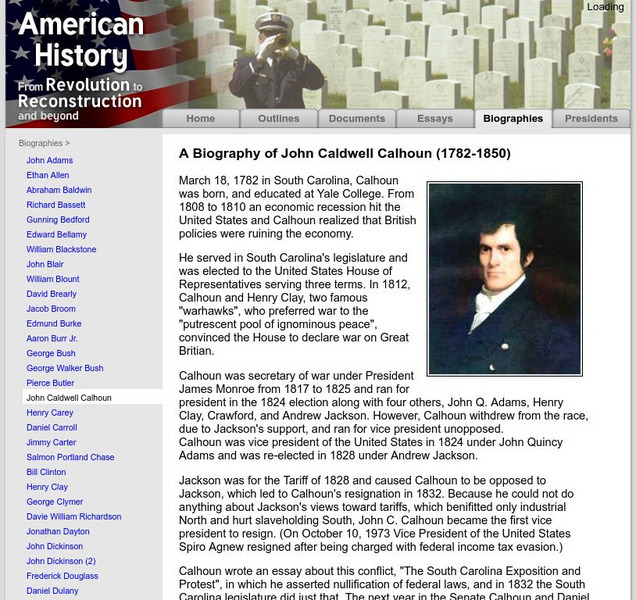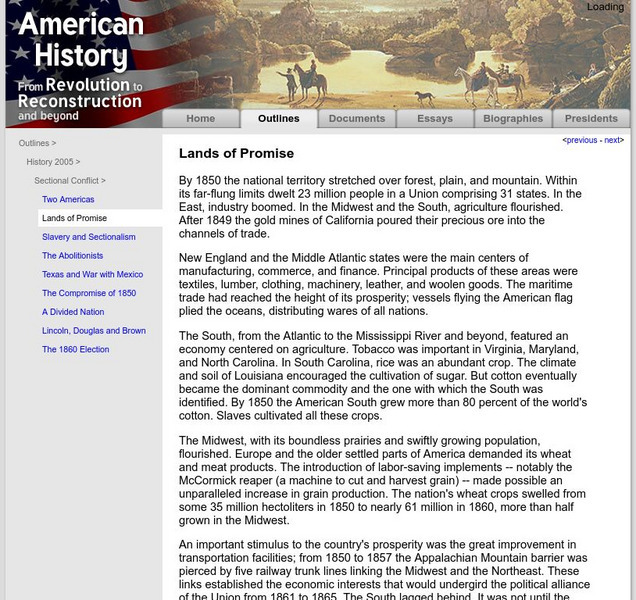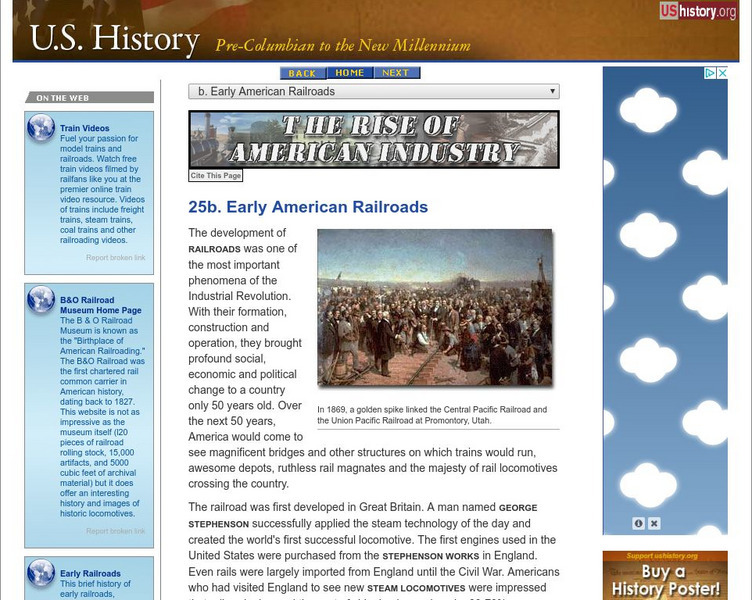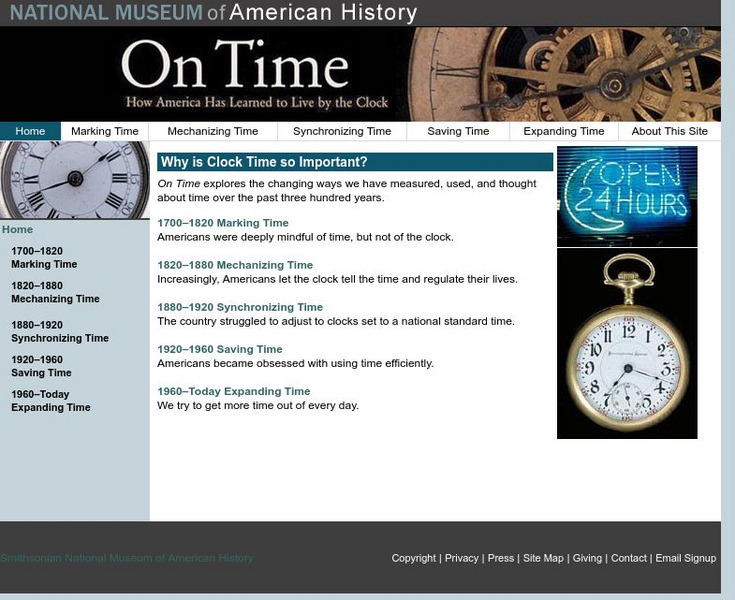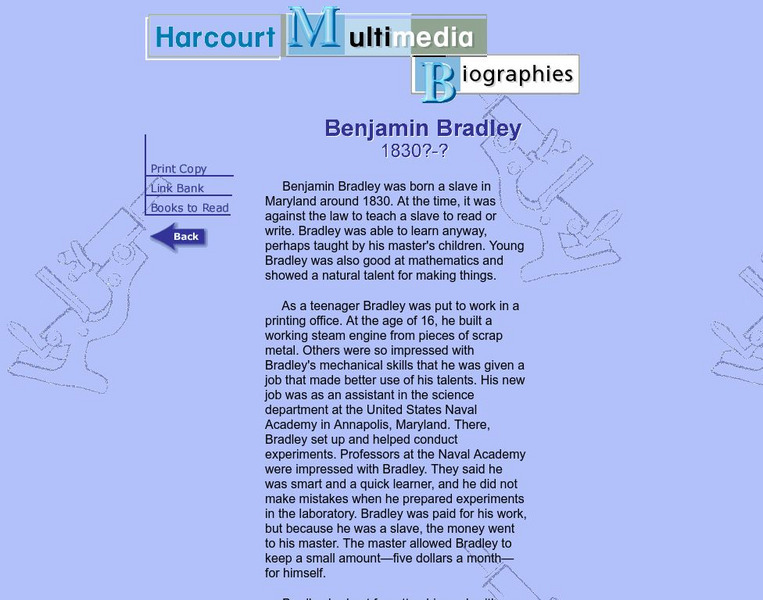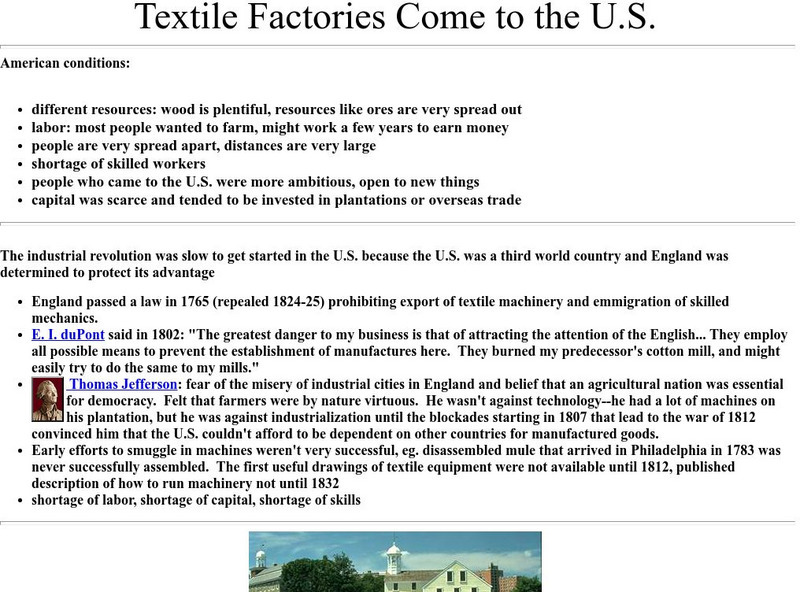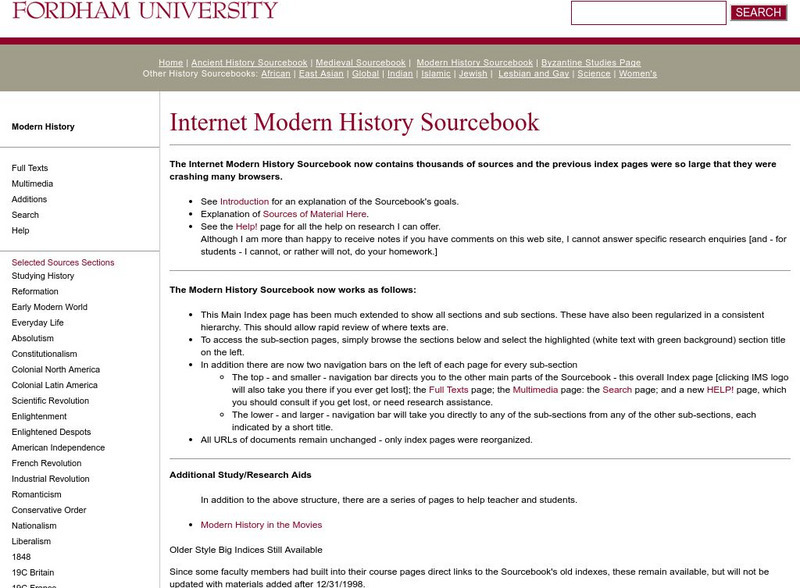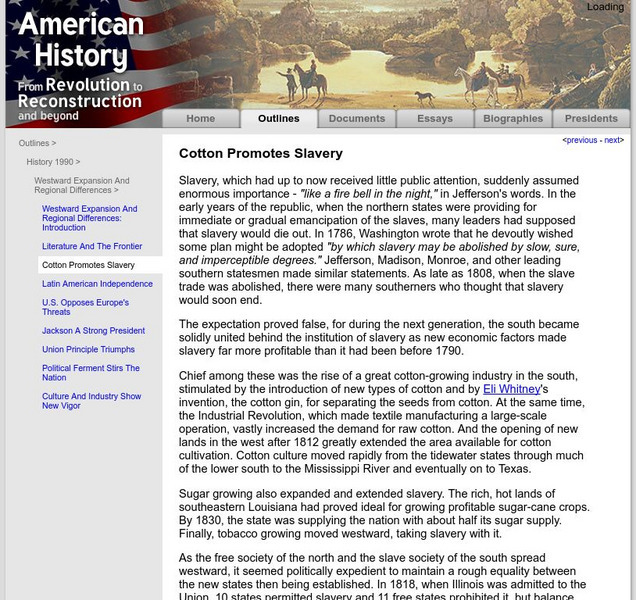Library of Congress
Loc: Teachers: America at the Centennial
A lesson plan requiring student to analyze primary documents from the Philadelphia Centennial Exposition of 1876. Students interpret what these historical artifacts say "about the lives and values of Americans in 1876" among other things.
Siteseen
Siteseen: American Historama: Mc Cormick Reaper
Read interesting facts about Cyrus McCormick, inventor of the mechanical horse-drawn reaper 1n 1831.
University of Groningen
American History: Outlines: The Struggles of Labor
Outline of the struggles, conflict and violence experienced by 19th Century industrial workers.
University of Groningen
American History: Outlines: Technology and Change
Oultine of the changes in industry and technology during the 1800s, bringing tremendous growth of big business, urbanization and railroads.
University of Groningen
American History: Outlines: j.p. Morgan and Finance Capitalism
Overview on the rise of industry resulting in the need for investment banking, of which J. P. Morgan was a pioneer.
University of Groningen
American History: Biographies: John Caldwell Calhoun
This biographical resource on John Calhoun points out Calhoun's resignation, the first vice-president to resign from active office. Calhoun opposed Jackson's affirmative stand on the Tariff of 1828 which favored the Industrial North over...
University of Groningen
American History: Outlines: Lands of Promise
Outline about the promising economic times of an expanding America during the 1800s, including changes taking place in New England, the South, the Midwest and West.
Independence Hall Association
U.s. History: Early American Railroads
Read about the growth of railroads throughout the eastern part of the United States, which greatly reduced transportation costs. See why there was opposition to railroads from many groups. Be sure to look at the stereograph of the...
Smithsonian Institution
National Museum of American History: On Time
A multimedia-rich site that examines time and our conception of it: marking time, mechanizing time, synchronizing time, saving time, and expanding time.
Annenberg Foundation
Annenberg Learner: Primary Sources: The Lowell System
An hour-long professional development video on teaching how the Lowell System was a departure from traditional labor practices. Features experienced classroom teachers. Materials and a complete lesson plan are also provided.
Massachusetts Institute of Technology
Mit: Inventor of the Week: Robert Fulton
This website contains biographical information about Robert Fulton, including the events leading up to his design of the first successful steamboat.
University of Groningen
American History: Outlines: The Era of Expansion and Reform
Information about the period in United States history between the Civil War and World War I. The United States was transformed from a rural republic to an urban state.
Library of Congress
Loc: American Treasures: Fulton's Submarine
This site from the American Treasures of the Library of Congress provides information on the first submarine built by Robert Fulton. The information that is provided is somewhat brief but factual, and worth checking out on the subject.
A&E Television
History.com: These Appalling Images Exposed Child Labor in America
The Industrial Revolution brought not only new job opportunities but new laborers to the workforce: children. By 1900, 18 percent of all American workers were under the age of 16. 1904, the National Child Labor Committee formed in the...
Siteseen
Siteseen: American Historama: Bessemer Process
Provides a summary and detailed facts about Henry Bessemer who invents a process in 1855 to create steel from iron.
A&E Television
History.com: How Ghost Stories Became a Christmas Tradition in Victorian England
Spooky stories featuring the supernatural were all the rage during the darkest time of the year. Towards the end of each year, as fireplaces are lit and hot cocoa is made, Americans have made it a tradition to revisit their favorite...
PBS
Pbs: Who Made America? Samuel Slater
Slater divided factory work into such simple steps that children aged four to ten could do it -- and did. While such child labor is anathema today, American children were traditionally put to work around the farm as soon as they could...
Houghton Mifflin Harcourt
Harcourt: Biographies: Benjamin Bradley
Learn about inventor and African-American slave, Benjamin Bradley, developer of a steam engine large enough to run the first steam-powered warship.
Other
Lecture Notes: Textile Factories Come to the u.s.
Clemson University provides a historical overview of the wave of textile factories, including Slater and Lowell, that cropped up in the northeast. Hyperlinks to additional information.
Internet History Sourcebooks Project
Fordham University: Modern History Sourcebook
A rich Fordham University site of primary source material that include full-text, and multimedia sites. There are additional study and research guides such as Modern History in the Movies.
University of Groningen
American History: Outlines: Carnegie and the Era of Steel
A brief explanation of Andrew Carnegie's role in the advancement of steel production.
University of Groningen
American History: Outlines: Cotton Promotes Slavery
A brief history of how the economic growth of the South became dependent on the work of slaves and how this solidified the unity of the southern states. Links throughout the text will take to you sites containing relevant information.
University of Groningen
American History: Outlines: The Booming 1920s
Section on the post-war economic boom and social changes that hit in the 1920s after World War I.







